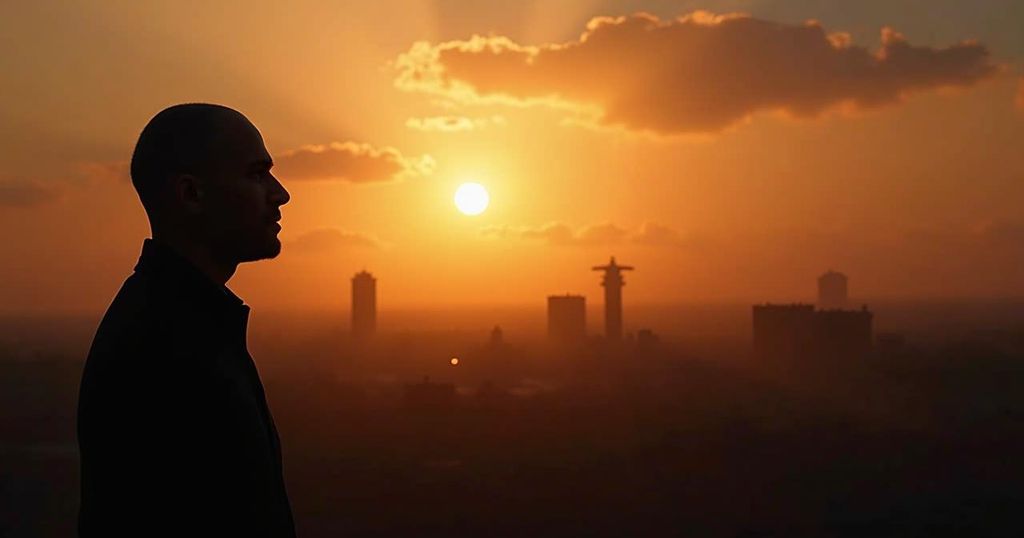Recent elections in Tunisia suggest that incumbent President Kais Saied is likely to win a second term with 89.2% support, despite allegations of electoral integrity issues. Voter turnout was at a record low of less than 28%, and significant opposition figures are either imprisoned or barred from running. Tunisia’s democratic progress has faltered under Saied, raising concerns about human rights and political repression amid serious economic challenges.
The incumbent President Kais Saied is poised to secure a second term following the conclusion of Tunisia’s presidential election held recently. An exit poll indicated that President Saied, at 66 years of age, garnered approximately 89.2% of the votes. However, this substantial support came from a disconcerting voter turnout of less than 28%, marking the lowest participation of any presidential election since the 2011 revolution. Reports indicate that serious challengers to Saied were barred from the election, and one of his opponents is currently incarcerated. Among the contenders, former lawmaker Zouhair Maghzaoui, who once supported Saied’s power consolidation in 2021 before changing his stance, is projected to receive about 3.9% of the votes. The other rival, Ayachi Zammel, a businessman imprisoned for alleged election-related fraud, was expected to secure approximately 6.9% of the support. Significantly, key political figures from larger opposition parties were also unable to contest, as they are either imprisoned or have been prevented from running through a heavily influenced electoral commission. Notably, Rached Ghannouchi, head of the Ennahdha party, and Abir Moussi, leader of the Free Destourian Party, are among the detained opposition leaders. In the lead-up to the election, an independent court’s authority to address electoral disputes was notably curtailed. Initially seen as a beacon of hope during the Arab Spring, Tunisia’s democratic experiment has regressed under Saied, who has undermined democratic institutions since his election in 2019. Human Rights Watch has documented over 170 arrests linked to political activities and the repression of fundamental rights. President Saied has dismissed accusations of dismantling democracy, labeling his opponents as traitors. Economically, Tunisia is grappling with significant challenges, including shortages of essential goods, high unemployment, and rampant inflation. President Saied has been reluctant to implement necessary fiscal reforms to secure assistance from the International Monetary Fund (IMF), with the nation currently relying on recovering tourism and European Union support in exchange for migration control measures.
Tunisia’s political landscape is deeply rooted in its revolutionary history, particularly regarding the Arab Spring that began in 2011. The ousting of autocratic President Zine El Abidine Ben Ali marked a significant shift towards democracy. However, following the rise of President Kais Saied in 2019, the country has been criticized for backtracking on democratic principles. After assuming office, Saied has curtailed the powers of parliament and altered the constitution, returning the region to an authoritarian regime reminiscent of its previous government. Evidence of political repression has grown, with scores of opposition leaders being detained and barred from participating in political processes, raising alarms among human rights organizations about the state of democracy in Tunisia.
In conclusion, President Kais Saied appears to be on the verge of securing re-election amidst widespread concerns about the election’s legitimacy and the suppression of political opposition. A notably low voter turnout underscores the troubling state of democracy in Tunisia as the country grapples with economic difficulties and mounting political dissent. The repressive measures implemented under Saied’s regime have drawn international scrutiny and criticism, indicating a stark departure from the aspirations for democratic governance that characterized the post-revolution period.
Original Source: www.dw.com






